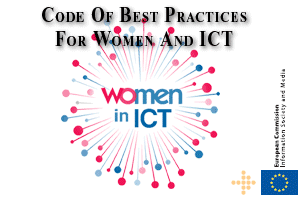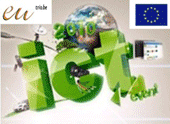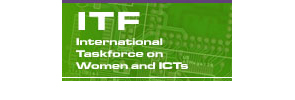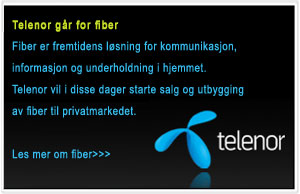
| Official news | | | | | Collected from GWTnet | Calendar | Mapping | Questionnaire | Questionnaire statistic | Registration | ECWT Newsletters |
 |
 |
|
“Over time, a nation’s competitiveness depends significantly on whether and how it educates and utilizes its female talent, that is, to give women the same rights, responsibilities and opportunities as men."(World Economic Forum, Gender Equality Gap report, 2010) “Compared to quantitative easing and other macro policies, we believe gender equality is possibly the most powerful action the government can take to promote long-term, sustainable growth.” (Goldman Sachs, 2010) Women’s increased participation in labour markets has been one of the key sources of sustained economic growth (‘womenomics’). Women control more than 20 trillion dollars of consumer spending and that number is predicted to rise to US$28 trillion by 2014. Women influence 80% of consumer spending decisions and yet 90% of technological products and services are designed by men! "My clear line is that if Lehman Brothers had been 'Lehman Sisters,' would the crisis have happened like it did? No. Generally, women have a better ear to listen, and they are less likely to pretend to know everything themselves. They are team players with less ego,"
Challenge For women entrepreneurs to thrive in a globalizing market, they need to upgrade their skills, upscale their products, and retarget their customers. The impact of information and communication technologies (ICTs) on development largely depends on the existing economic, social and cultural fabric into which they are introduced. A gendered perspective on software production shows that ICTs create opportunities for women. However, they also reproduce gender inequalities seen in the broader fabric of society. ICT policies must therefore take account of the gendered roles, norms and practices that affect both labour markets and households because these, in turn, affect both the outcome and sustainability of ICT-based development. Men are more likely to start their own businesses and there is no country where women are more active in starting and owing businesses than men. There is, however, a growing tendency for women to start and also to own their businesses. Women are also increasingly intersted in distance working and teleworking, the conditions for these new working-forms are though not adequately developed. Understanding the unique characteristics and motivations of females is central to building a sustainable economic future:
The changing nature of ITEC work, particularly with the growth of offshoring and outsourcing, has led to changing skills needs in many ITEC companies. 'The Implementing Diversity Policies: Guiding Principles' – funded by The Royal Academy of Engineering and produced in partnership with Equalitec year 2007 showed: 'Many employers are now looking for employees who are able to demonstrate ‘hybrid’ skills i.e. behavioural as well as technical skills. These are skills which women in particular are seen as being able to contribute, drawing on the skills developed from their multiple roles inside and outside the workplace. However the culture of ITEC workplaces - macho, nerdy and involving long hours - can make it difficult for women to gain entry and, having gained entry, reach their full potential. If businesses want to capitalise on the ‘hybrid’ skills that women can offer they need to find more creative ways of attracting and retaining them'. For the detailed report:
A detailed benchmarking analysis of women entrepreneurs in the ICT sector has been carried out by the Leonardo da Vinci programme confinanced project WISE. ECWT's response to the challenge The ECWT actionplan will be based on a Regional Mapping of stakeholders, resources, good examples that will be carried out through the European Directory for Women an ICT supported by the European Commission DG INFSO to be launched in October 2009. Steinbeis Europa Zentrum, Member of the ECWT is one of the key actors with considerable experience in the field of gender equality in regard to ICT access, ICT use and contribution of girl and women in design, innovation and decision making in ICT and related sectors. Steinbeis Europa Zentrum has been since 1999 engaged in specific consulting services for women and has during recent years led some key EU projects in the area. The European funded projects WENETT, WE-Mentor, WomEn2FP6 and FemStart applied specific measures to increase the number of women entrepreneurs participating in technology transfer, in European projects or of university start ups.
WENETT- Promotion of Women EntrepreNeurs to participate in European Technology Transfer - Role Models from Bulgaria, Germany, Poland, Scotland and Sweden - Showcase of European Women Innovators
Developing a gender lens for supporting European Research Participation - Lessons Learned - WomEn2FP6
Enterprising Women in European Research Mentoring India, Israel, Romania and Turkey - WE-MENTOR
Fostering the Public Debate on University Support of Female Scientists to Start a Business - FemStart
For more information: |


















